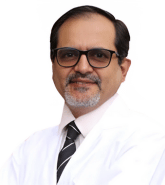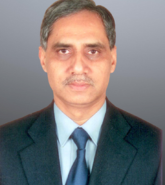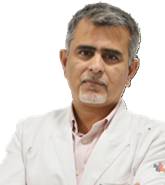Best Thyroid Cancer Doctors in India
Thyroid cancer treatment in India is managed by a multidisciplinary team, including surgical oncologists, medical oncologists, and radiation oncologists, who collaborate to diagnose and tailor treatment plans. India boasts a wealth of highly qualified specialists in this field, making the choice of healthcare provider a pivotal step in your journey to recovery.
Though thyroid cancer is relatively more common than some endocrine cancers, early detection and prompt intervention significantly improve outcomes. Patients in India benefit from access to renowned experts and advanced medical facilities across the country.
Selecting the right specialist requires careful evaluation. An ideal physician will not only deliver precise diagnostics and effective treatment but also provide empathetic guidance through the emotional challenges of a cancer diagnosis. A doctor who balances expertise with compassionate care can profoundly impact both physical recovery and emotional well-being.
Leading Thyroid & Head-Neck Cancer Specialists in India (2025)
India is home to numerous qualified doctors who treat thyroid cancer. The treatment is supported by a team of experts from surgical oncology, medical oncology, and radiation oncology. Finding the best doctor for diagnosis plays a significant role in your medical journey.
These highly accomplished surgeons and oncologists are recognized for their expertise in thyroid and head-neck cancers, offering advanced techniques like robotic surgery, HIPEC, and minimally invasive procedures.

Dr. Sowrabh Kumar Arora

Dr. Vikram Pratap Singh

Dr. Kapil Kumar

Dr. Niranjan Naik

Dr. Ranga Rao Rangaraju

Dr. Harit Chaturvedi

Dr. Ishita B. Sen


Dr. (Col) V.P. Singh

Dr. Jyoti Wadhwa

Dr. Sandeep Mehta

Dr. Ramesh Sarin

Dr. Rajesh Mistry

Dr. Deepak Sarin
Understanding Thyroid Cancer
Thyroid cancer arises from abnormal cell growth in the thyroid gland, which regulates metabolism, heart rate, and body temperature via hormones like thyroxine (T4) and triiodothyronine (T3). The four primary types include:
- Papillary Thyroid Cancer: Slow-growing but may spread to neck lymph nodes.
- Follicular Thyroid Cancer: Can invade blood vessels and lymph nodes.
- Medullary Thyroid Cancer: Originates in hormone-producing C cells; often linked to genetic syndromes like multiple endocrine neoplasia (MEN).
- Anaplastic Thyroid Cancer: A rare, aggressive form challenging to treat.
Key Factors to Consider Before Choosing a Doctor
Treatment success hinges on the expertise of your medical team. Critical considerations include:
- Qualifications and Accreditations: Verify the doctor’s certifications, training, and licensure.
- Clinical Experience: Prioritize specialists with extensive hands-on experience in thyroid cancer.
- Reputation and Reviews: Assess patient testimonials and peer recommendations.
- Hospital/Clinic Affiliation: Affiliation with reputed institutions ensures access to advanced technology and collaborative care.
Types of Doctors Involved in Thyroid Cancer Treatment
A comprehensive approach involves:
- Surgical Oncologists: Perform thyroidectomies (full or partial gland removal) and lymph node dissections.
- Medical Oncologists: Manage cases requiring chemotherapy or targeted therapies, particularly for advanced or recurrent cancer.
- Radiation Oncologists: Administer radioactive iodine therapy (for papillary/follicular types) or external beam radiation (e.g., for anaplastic cancer).
- Endocrinologists: Monitor and regulate hormone levels post-surgery to maintain metabolic balance.
- Pathologists: Analyze biopsy samples to confirm cancer type and stage, guiding treatment decisions.
- Radiologists: Interpret ultrasound, CT, MRI, or PET scans to evaluate tumor spread and treatment response.
- Genetic Counselors: Assess hereditary risks, especially for medullary thyroid cancer linked to genetic mutations.
- Nuclear Medicine Specialists: Oversee radioactive iodine treatment and post-therapy imaging.
By collaborating, these specialists create personalised care plans, ensuring optimal outcomes. Choosing a skilled, compassionate team empowers patients to navigate treatment confidently, fostering both physical healing and emotional resilience.
How to Choose the Right Doctor for Thyroid Cancer
Selecting the appropriate specialist for thyroid cancer involves understanding key factors that influence diagnosis, treatment, and long-term outcomes. Here’s what to consider:
Specialisation and Clinical Expertise
Look for surgical oncologists, endocrine surgeons, or ENT specialists with extensive experience in managing thyroid cancers. Doctors who focus specifically on head and neck or endocrine oncology often bring nuanced understanding and surgical precision, especially in complex or recurrent cases.
Access to Advanced Techniques
Effective thyroid cancer management may involve robotic thyroidectomy, scarless endoscopic procedures, and radioiodine therapy. Choose a doctor proficient in the latest techniques aligned with global protocols (e.g., ATA, NCCN), ensuring optimal cosmetic and clinical results.
Multidisciplinary Collaboration
The best outcomes are achieved when a team of experts—including surgical oncologists, endocrinologists, nuclear medicine specialists, and radiation oncologists—work together. This coordinated care model ensures every aspect of the disease is addressed, from hormone regulation to post-operative rehabilitation.
Hospital Infrastructure and Support Services
Ensure the medical facility is equipped with modern diagnostic tools such as ultrasound-guided FNAC, thyroid scans, PET-CT, and has capabilities for comprehensive post-operative care. Access to a nuclear medicine department is vital for radioiodine ablation.
Patient Feedback and Clinical Reputation
Real patient testimonials provide valuable insights into the doctor’s approachability, communication style, and post-surgical support. Reputation built through years of consistent patient care, academic contributions, and surgical success is a reliable indicator of quality.
Focus on Long-Term Quality of Life
Experienced doctors also account for potential complications like hypoparathyroidism or vocal cord injury and offer strategies to preserve voice, calcium balance, and emotional well-being. Those affiliated with thyroid cancer support programs often deliver more holistic care.
Conditions Managed by Thyroid Cancer Specialists
Malignant Conditions:
- Papillary Thyroid Carcinoma (PTC): Most common subtype; usually slow-growing and responsive to treatment.
- Follicular Thyroid Carcinoma (FTC): Requires expert evaluation to assess vascular invasion and distant metastasis.
- Medullary Thyroid Carcinoma (MTC): Genetic in nature; treatment may involve targeted therapies and genetic counseling.
- Anaplastic Thyroid Cancer: Aggressive and rare; requires immediate, multidisciplinary intervention.
Benign & Pre-Malignant Conditions:
- Thyroid Nodules & Goitre: Require precise diagnosis to rule out malignancy.
- Thyroiditis (e.g., Hashimoto’s): Chronic inflammation managed through medication and monitoring.
- Benign Thyroid Adenomas: May need removal based on size, symptoms, or cosmetic concerns.
Hormonal & Metabolic Management:
- Thyroid Hormone Replacement: Post-surgical management often includes lifelong thyroxine therapy to regulate metabolism.
- Calcium and Parathyroid Monitoring: Especially critical after total thyroidectomy to prevent complications.
Accessing Thyroid Cancer Care in India
India offers world-class thyroid cancer treatment across major metros like Delhi, Bangalore, Chennai, and Kochi. Centers of excellence are equipped with precision diagnostics, robotic surgical options, and post-treatment rehabilitation services.
Medical teams prioritise a patient-centric and empathetic approach, acknowledging both the physical and emotional challenges of thyroid cancer. From initial diagnosis to recovery, hospitals often offer access to counseling, support groups, and education on hormone management and long-term surveillance.
Specialised programs often include:
- Scarless/endoscopic thyroid surgery options
- Voice therapy and endocrine follow-up care
- Personalized risk-based post-operative surveillance protocols
Early diagnosis and personalised treatment plans significantly improve survival rates and quality of life. For individuals seeking guidance, dedicated patient navigation services are available to assist in selecting the right doctor and treatment path based on clinical needs and financial considerations.
You May Be Also Interested In









